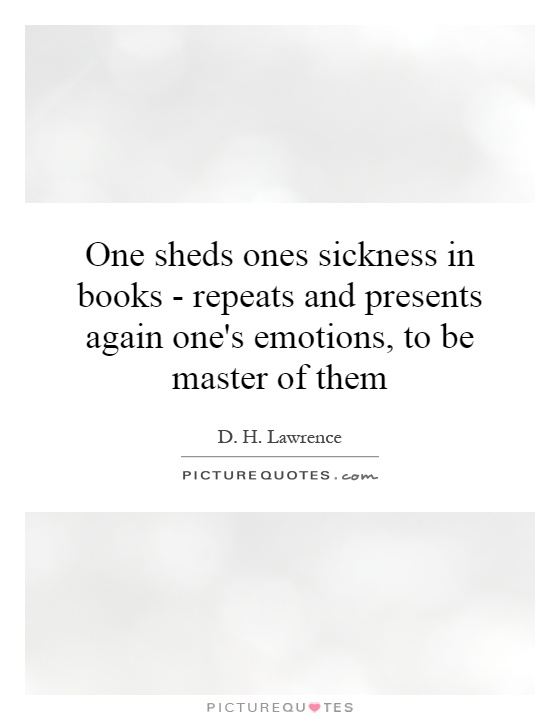One sheds ones sickness in books - repeats and presents again one's emotions, to be master of them

One sheds ones sickness in books - repeats and presents again one's emotions, to be master of them
D.H. Lawrence, a renowned English writer, once said, “One sheds one's sickness in books - repeats and presents again one's emotions, to be master of them.” This quote encapsulates the power of literature as a form of catharsis and self-discovery. Lawrence believed that through writing and reading, individuals could confront their innermost emotions and experiences, ultimately gaining control over them.Lawrence himself was no stranger to the therapeutic nature of writing. Throughout his career, he delved into themes of love, sexuality, and the human condition, drawing from his own personal struggles and relationships. In works such as "Sons and Lovers" and "Lady Chatterley's Lover," Lawrence explored the complexities of human emotions and desires, often pushing the boundaries of societal norms and expectations.
For Lawrence, writing was a way to confront his own demons and make sense of the world around him. By putting his thoughts and feelings onto paper, he was able to process his experiences and gain a deeper understanding of himself. In doing so, he was able to shed his emotional baggage and emerge as a master of his own emotions.
Similarly, Lawrence believed that readers could also benefit from the act of engaging with literature. By immersing themselves in the stories and emotions of others, readers could gain insight into their own lives and experiences. Through the process of identification and empathy, readers could confront their own emotions and ultimately gain mastery over them.












 Friendship Quotes
Friendship Quotes Love Quotes
Love Quotes Life Quotes
Life Quotes Funny Quotes
Funny Quotes Motivational Quotes
Motivational Quotes Inspirational Quotes
Inspirational Quotes